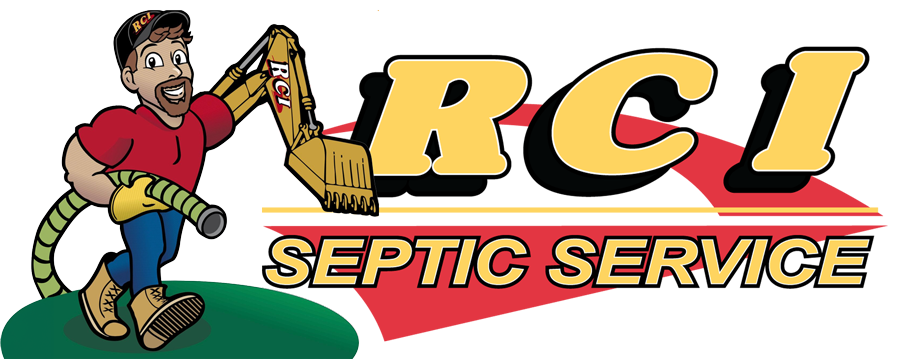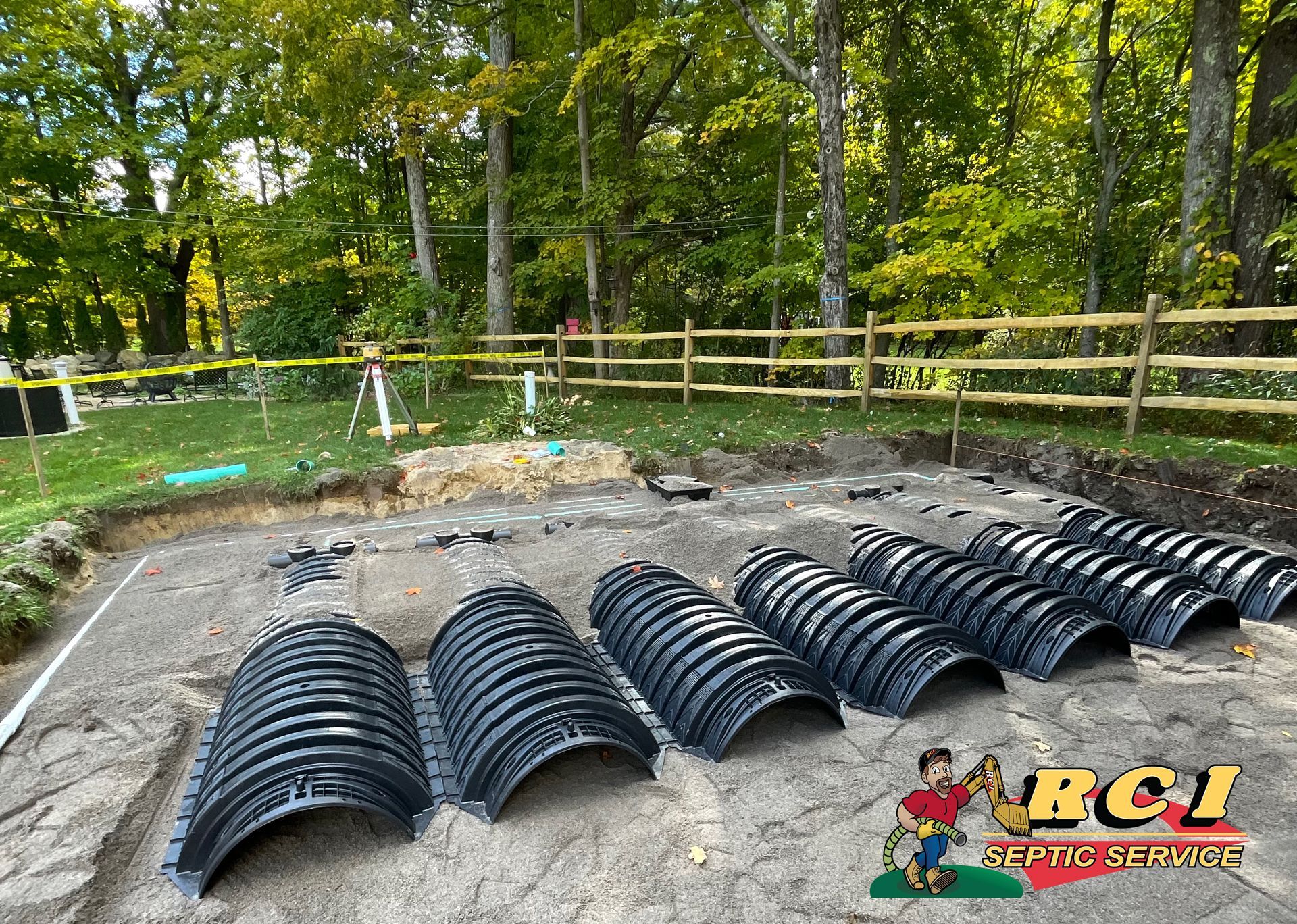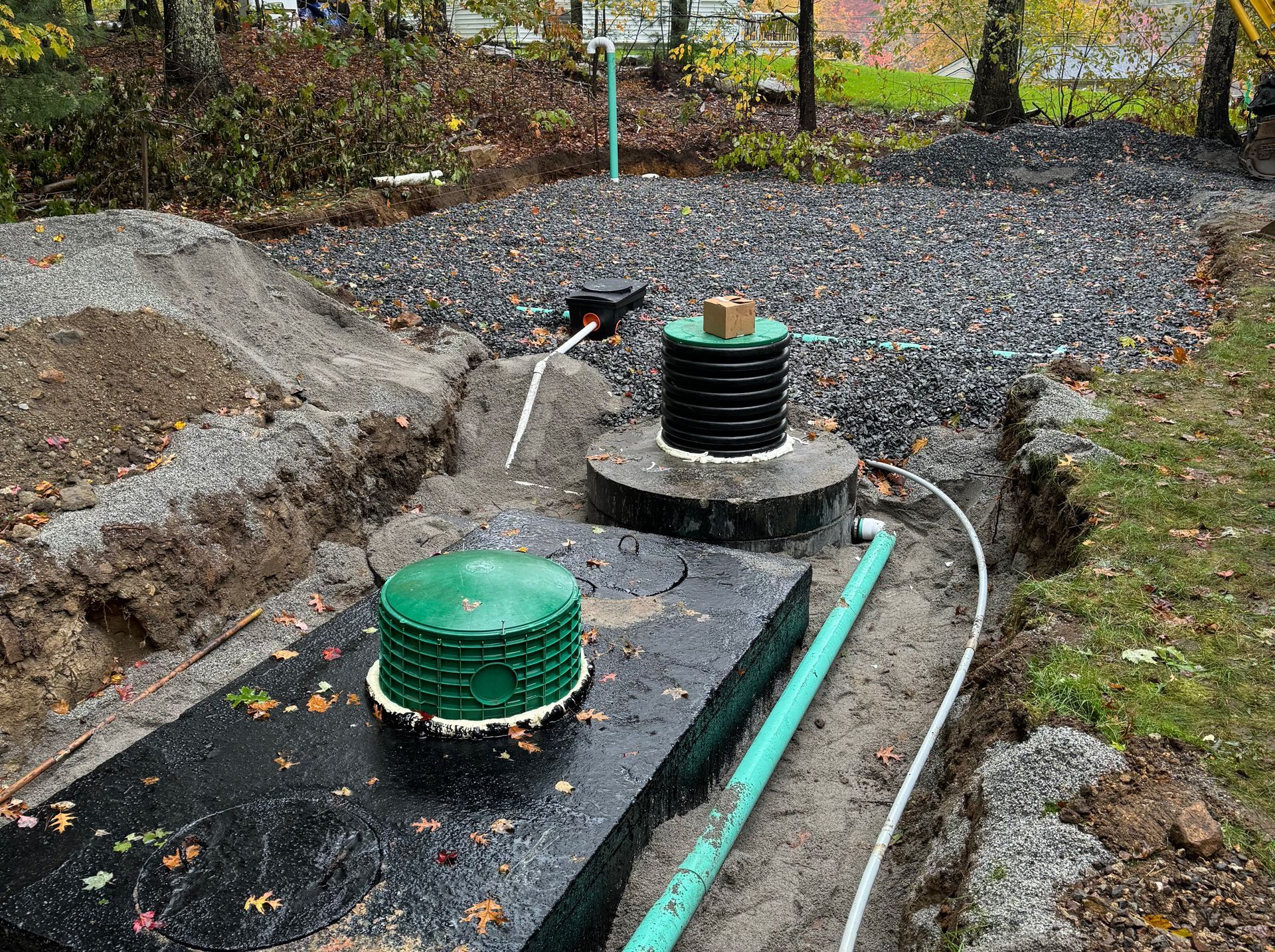The Importance of Maintaining Your Leach Line Septic System
Leach lines are a critical component of a leach line septic system. They disperse wastewater into the soil for natural filtration. This prevents groundwater contamination and maintains the system’s health. In this article, you’ll learn how leach lines work, why they are important, and how to maintain them effectively.
Key Takeaways
- Leach lines are crucial for effective wastewater treatment in septic systems. They prevent groundwater contamination and extend the septic tank’s lifespan.
- Early detection of leach line issues, indicated by slow drainage, unusual odors, or standing water, is essential for preventing costly repairs and environmental harm.
- Regular maintenance practices, including scheduled pumping, and proper waste disposal, are vital for the longevity and efficient functioning of leach line septic systems.
Understanding Leach Lines
Leach lines are fundamental to a septic system’s functionality, often working unnoticed. These components process wastewater into the soil, ensuring effective system operation. When wastewater leaves your septic tank, it doesn’t just disappear. It enters the leach lines, where it undergoes natural filtration and treatment. This process not only cleans the water but also prevents groundwater contamination.
Leach lines serve both residential and commercial needs. Proper management and maintenance are key to their effectiveness. They play a significant role in preventing groundwater contamination by effectively treating and dispersing wastewater. Moreover, healthy leach lines can extend the life of your septic tank, reducing the need for costly repairs or replacements.
Understanding what leach lines are, how they work, and their importance can help in managing them better.
What Are Leach Lines?
Leach lines, also known as leach drains or septic drain fields, are integral parts of septic systems. Their primary function is to disperse septic effluent into the soil, where it undergoes natural filtration and treatment. These lines are typically made from perforated PVC leach pipe, which allows the effluent to seep into the surrounding soil. This process ensures that the wastewater is treated and cleaned by the natural processes in the soil, including leach fields and the drain field.
The design and installation of leach lines can vary depending on the soil type and the size of the property. In some cases, alternative systems like mound systems may be used to accommodate different soil conditions. Another alternative is the chamber system, which offers advantages such as ease of construction and suitability for various environments, including high groundwater areas and locations where gravel is limited. These systems are constructed to ensure that the wastewater is effectively treated, regardless of the soil type.
Knowing the structure and function of leach lines is essential for maintaining a healthy septic system.
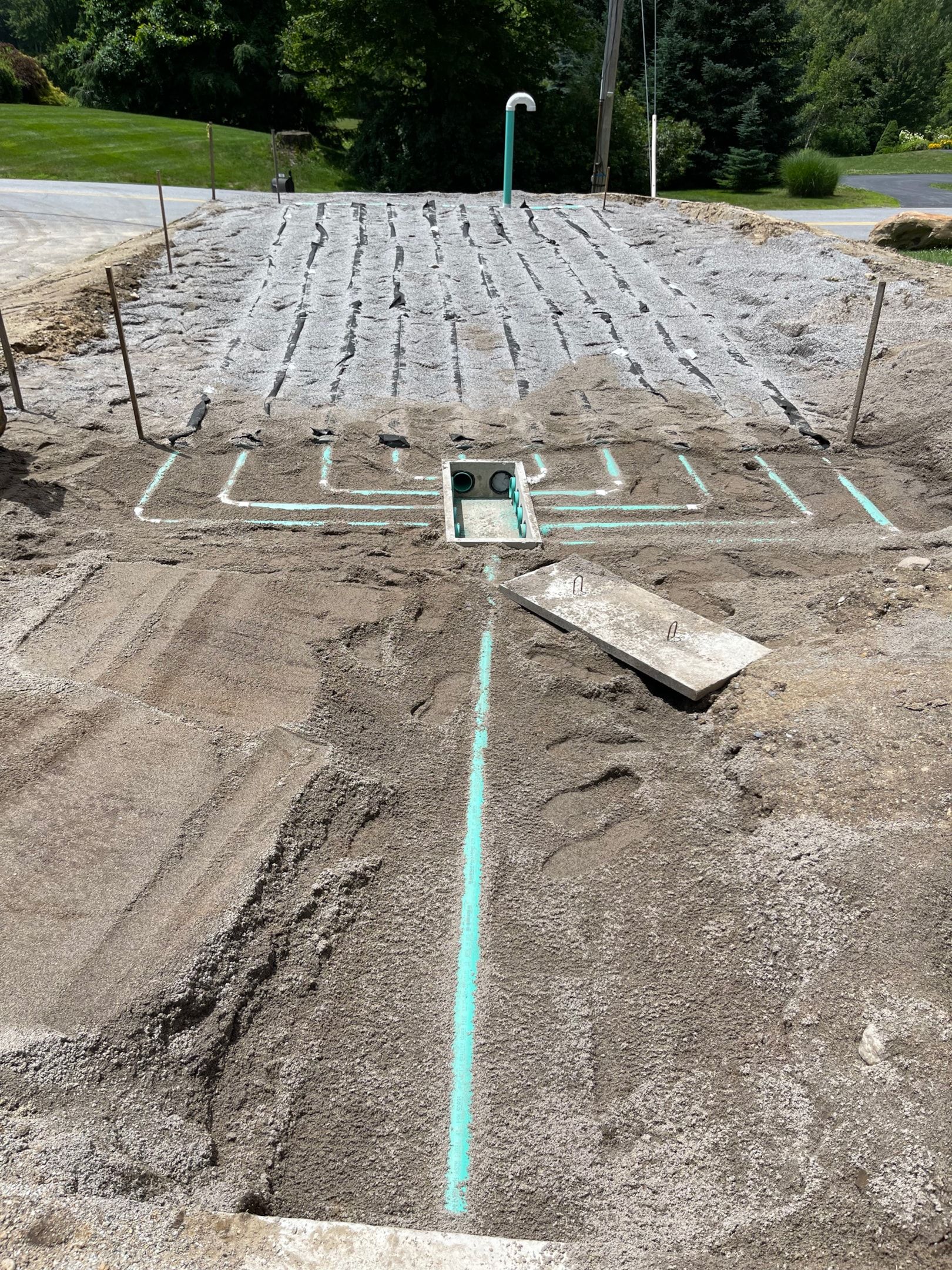
How Do Leach Lines Work?
Leach lines, also known as absorption trenches, are pivotal in the wastewater treatment process. When effluent from the septic tank is piped to gravel trenches where the leach lines are located, it trickles out of the leach pipes through tiny holes. This effluent then percolates through gravel and into the soil. The surrounding gravel and sand act as a natural filter, cleaning the wastewater before it returns to the earth.
The magic of leach lines lies in their ability to utilize bacteria for natural wastewater filtration and treatment. These bacteria break down organic materials in the effluent, ensuring that the water is clean by the time it reaches the water table. The entire process relies on gravity flow, ensuring that the wastewater moves steadily through the system without causing backups.
This natural filtration system is efficient and eco-friendly, making leach lines a critical component of any septic system. Understanding how leach lines work helps homeowners appreciate the need for regular maintenance to keep their septic systems in top condition.
Why Are Leach Lines Important?
Leach lines protect the environment by preventing wastewater from pooling on the surface, which can contaminate drinking water sources. The effluent from septic tanks seeps through the leach lines into the surrounding soil, where bacteria break down the waste. This process ensures that the wastewater is treated effectively, preventing any harmful contaminants from reaching the groundwater.
Healthy leach lines are vital for extending the life of your septic tank and preventing system failures. Bacteria in the leach lines break down waste in the water, ensuring proper wastewater treatment. By keeping your leach lines in good condition, you can avoid costly repairs and protect the environment from potential contamination.
Signs of Leach Line Issues
Homeowners must remain vigilant about the health of their leach lines. Monitoring the location of leach lines, drain speed, gurgling sounds, and odors can help detect issues early on. Early identification of these signs helps maintain septic system functionality and prevents severe environmental impacts.
Before:
Failure to manage leach lines properly can lead to groundwater or surface water contamination and increased methane gas levels.
Common indicators of leach line problems include mushy ground, increased grass growth over the lines, slow drains, gurgling sounds, and strange odors. Recognizing these symptoms can help you take timely action to address any issues with your septic system.
After:
Common indicators of leach line problems include:
- mushy ground
- increased grass growth over the lines
- slow drains
- gurgling sounds
- strange odors
Recognizing these symptoms can help you take timely action to address any issues with your septic system.
Symptoms of Failing Leach Lines
Failing leach lines often present several telltale symptoms. Common signs include slow drainage from bathtubs and sinks, persistent sewage odors, and standing water above the leach lines. Slow drainage from household fixtures may indicate problems with the leach lines, signaling the need for professional intervention.
Another significant indicator is unusual odors or pooling water near the leach field. If you notice damp spots or standing water in your yard, it could be a sign of leach line failure. Persistent symptoms require immediate professional intervention.
Causes of Leach Line Failures
Several factors can contribute to leach line failures. Common causes include clogs with solid waste, soil compaction, and improper maintenance. External factors such as excessive traffic on the leach field and improper grading can also lead to issues with the leach lines.
Physical conditions like collapsed pipes significantly contribute to problems with leach lines. Heavy objects like storage sheds, pools, and vehicles can create pressure on the leach lines, leading to failure.
To prevent clogs and issues, avoid disposing of non-biodegradable items and toys in the septic system. By understanding these causes, homeowners can take preventive measures to protect their leach lines from failure.
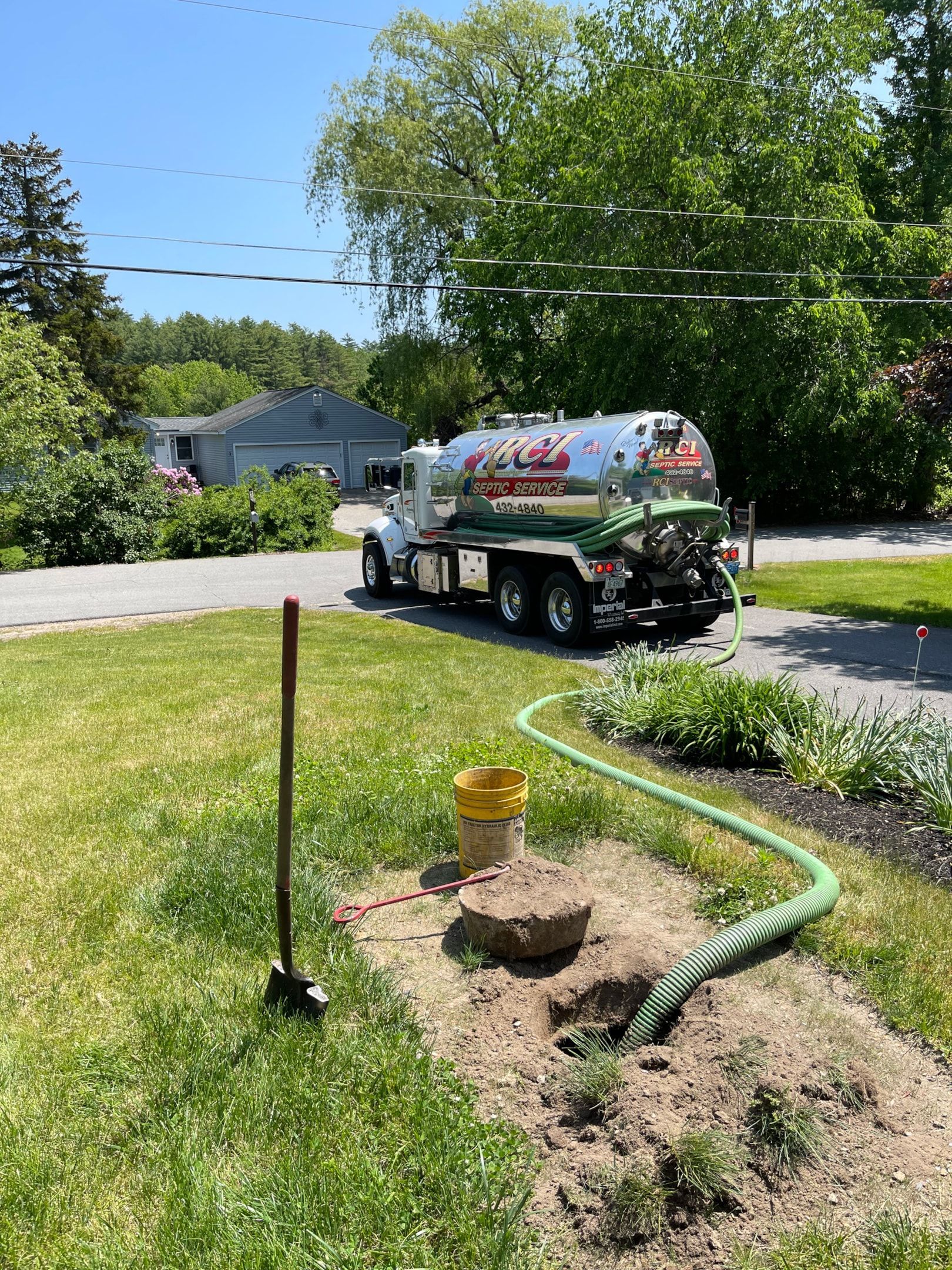
Maintaining Your Leach Line Septic System
Maintaining your leach line septic system is vital to prevent failures and environmental problems. Neglecting maintenance can result in system failure, backups, and complete breakdowns. Regular practices like pumping and proper waste disposal, can protect your leach lines and leach field.
Professional maintenance is key to effectively operating a septic system. Professional services can prevent clogs and environmental contamination, ensuring smooth leach line function.
Let’s explore specific maintenance practices in more detail.
Regular Pumping of the Septic Tank
Regular septic tank pumping is vital for maintaining a healthy septic system. Septic tanks should be pumped at least every three years to prevent sludge buildup, which can cause system failures and costly repairs. Skipping septic tank pumping can cause serious issues, including backups and environmental contamination.
Removing accumulated solid waste through septic tank pumping ensures the system functions efficiently. Regular pumping also helps prevent methane gas production and protects the groundwater from contamination.
Following a regular pumping schedule extends the septic system’s life and avoids costly repairs.
Avoid Clogging Leach Lines
Proper waste disposal is crucial to avoid clogging leach lines. Flushing personal products, wipes, and diapers can cause clogs that disrupt the septic system's function. Excessive traffic over the leach field can also cause soil compaction, affecting the lines’ ability to disperse wastewater effectively.
Adhering to proper waste disposal and minimizing traffic over leach lines significantly reduces clogging risk. This includes avoiding the disposal of non-biodegradable items and ensuring that heavy objects are not placed on the leach field. By taking these preventive measures, you can protect your leach lines from failure and ensure the smooth operation of your septic system.
Proper Use of Cleaners and Disinfectants
Using septic-safe cleaners is vital for maintaining healthy leach lines. Harsh drain cleaners and chemicals can disrupt essential bacterial activity, leading to system failures. Septic-safe cleaners support a healthy septic system ecosystem, extending its longevity.
The use of harsh chemicals can lead to severe issues, including the breakdown of necessary bacteria that treat wastewater. Septic-safe products ensure bacterial activity in leach lines remains intact, promoting effective wastewater treatment and preventing failures.
Inspecting and Repairing Leach Lines
Regular leach line inspections can identify issues before significant damage occurs. If leach line cracks or holes are not repaired, sewage can leak out and contaminate the surrounding area. Regular inspections and cleaning are preventive measures that help avoid leach line failures.
Leach lines can be damaged by weight from vehicles or heavy objects, leading to cracks or holes. If there are any signs of damage, it’s crucial to repair them immediately to prevent contamination.
Regular inspections and prompt issue resolution ensure the longevity and effectiveness of your septic system.
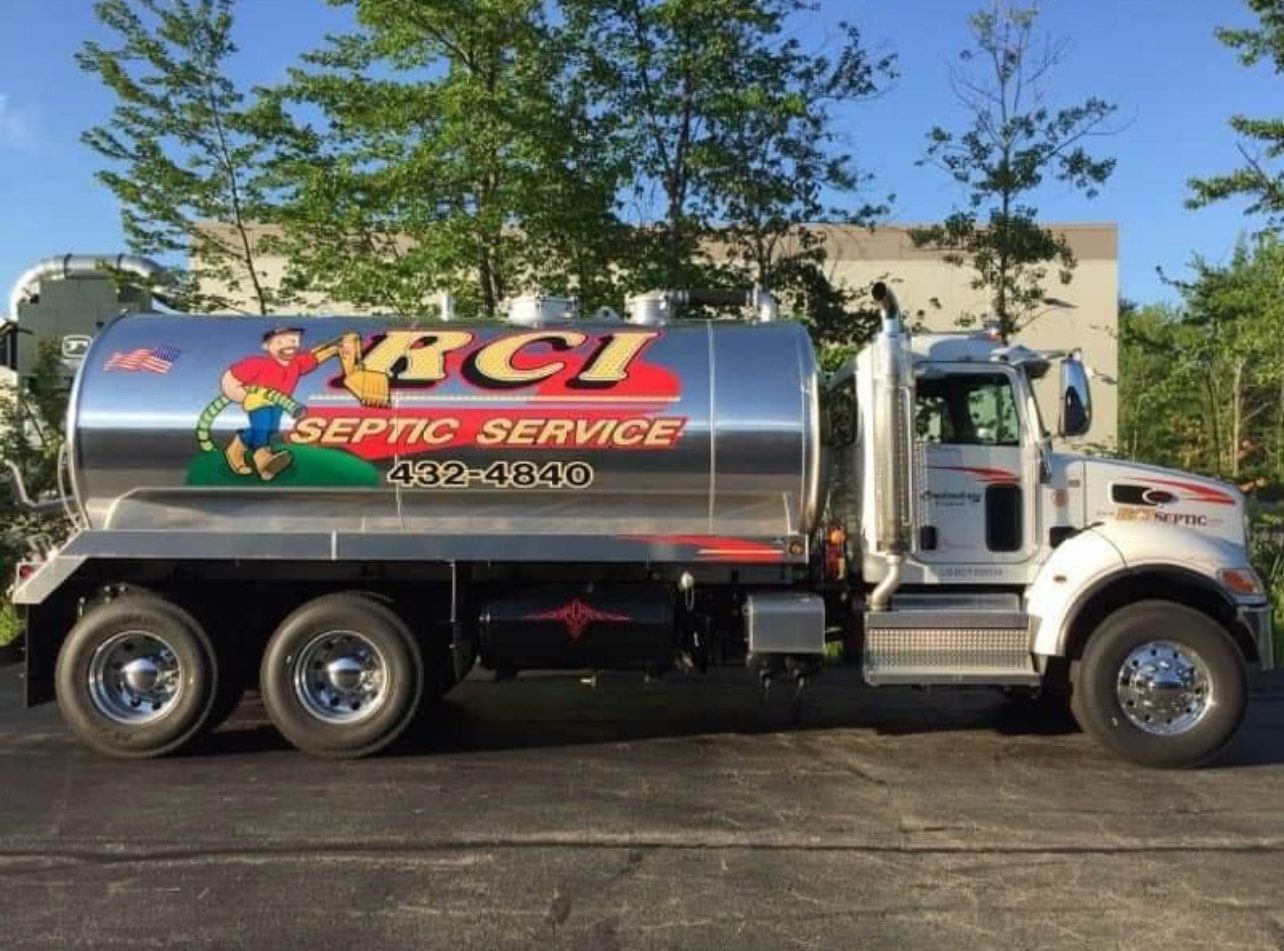
Professional Services for Leach Line Maintenance
Professional services are key in maintaining leach lines, ensuring efficient function and preventing costly repairs. Homeowners should call a professional when they notice persistent issues like slow drainage or foul odors, indicating potential leach line failures. Professional services diagnose and address problems early, preventing severe septic system damage.
RCI Septic Service offers expertise in thorough diagnostics, high-quality materials, and eco-friendly septic system maintenance solutions. Financing options are available through St. Mary’s Bank to help homeowners manage the costs of septic system projects effectively.
When to Call a Professional
A septic professional should be consulted for persistent leach line issues or major repairs. If you suspect leach line failure, contact a septic professional immediately. Prompt repairs prevent detrimental consequences, such as greenhouse gas production and property damage.
When leach lines fail, they typically require replacement conducted by a professional. Professional intervention ensures correct and efficient repairs, preventing further issues. By seeking professional help, homeowners can protect their septic systems and prevent costly repairs.
RCI Septic Service Expertise
RCI Septic Service employs advanced diagnostic tools to quickly identify leach line issues. They specialize in using high-quality materials for leach line repairs, ensuring that they are durable and long-lasting.
RCI Septic Service is known for offering eco-friendly solutions for septic system maintenance. Their expertise and commitment to quality make them a reliable choice for homeowners who need septic system services. By choosing RCI Septic Service, homeowners can ensure that their septic systems are maintained efficiently and effectively.
Financing Options
Managing septic system project costs can be challenging, but RCI Septic Service offers financing options through St. Mary’s Bank to assist. Tailored financing solutions make it easier for homeowners to undertake necessary septic system maintenance and repairs without financial strain. Whether you need a new system installation or major repairs, these financing options can help you manage the costs effectively.
St. Mary’s Bank offers flexible financing solutions for various septic system projects. By offering these options, RCI Septic Service ensures homeowners can access the best possible septic system care without immediate financial burden.
Financing support helps prioritize maintaining a healthy septic system and avoid high costs from neglecting necessary maintenance.
Summary
In conclusion, maintaining your leach-line septic system is essential for the health of your property and the environment. By understanding what leach lines are, how they work, and why they are important, you can better appreciate the need for regular maintenance.
Recognizing the signs of potential issues and the common causes of failures can help you take timely action to protect your septic system.
Regular pumping, proper waste disposal, using septic-safe cleaners, and conducting regular inspections are all crucial practices for maintaining your leach lines. When issues arise, seeking professional help from experts like RCI Septic Service ensures that your system is repaired efficiently and effectively. With available financing options, maintaining a healthy septic system is within reach for every homeowner. Take action today to ensure your septic system continues to function smoothly for years to come.
Frequently Asked Questions
What are leach lines, and how do they work?
Leach lines, or septic drain fields, disperse septic effluent into the soil through perforated pipes. This allows bacteria to filter and treat the effluent naturally. This process effectively breaks down waste and purifies the water before it enters the surrounding environment.
What are the common symptoms of failing leach lines?
Common symptoms of failing leach lines are slow drains, unpleasant odors, and soggy areas in the yard. Observing persistent sewage smells or standing water above the leach lines indicates an urgent need for professional help.
How often should a septic tank be pumped?
Septic tanks should be pumped at least every three years to prevent sludge buildup and potential system failures. Maintaining this schedule ensures optimal functioning and helps avoid costly repairs.
Why is it important to avoid using harsh chemicals in a septic system?
Avoiding harsh chemicals in a septic system is crucial because they can harm beneficial bacteria essential for breaking down waste, leading to system failures. Opting for septic-safe cleaners promotes a healthier ecosystem and enhances the system's longevity.
What should I do if I notice persistent drainage issues or foul odors emanating from my leach lines?
If you notice persistent drainage issues or foul odors from your leach lines, contact a septic professional without delay for inspection and repairs. Prompt action is crucial to prevent further damage to your septic system and potential contamination of your property.
